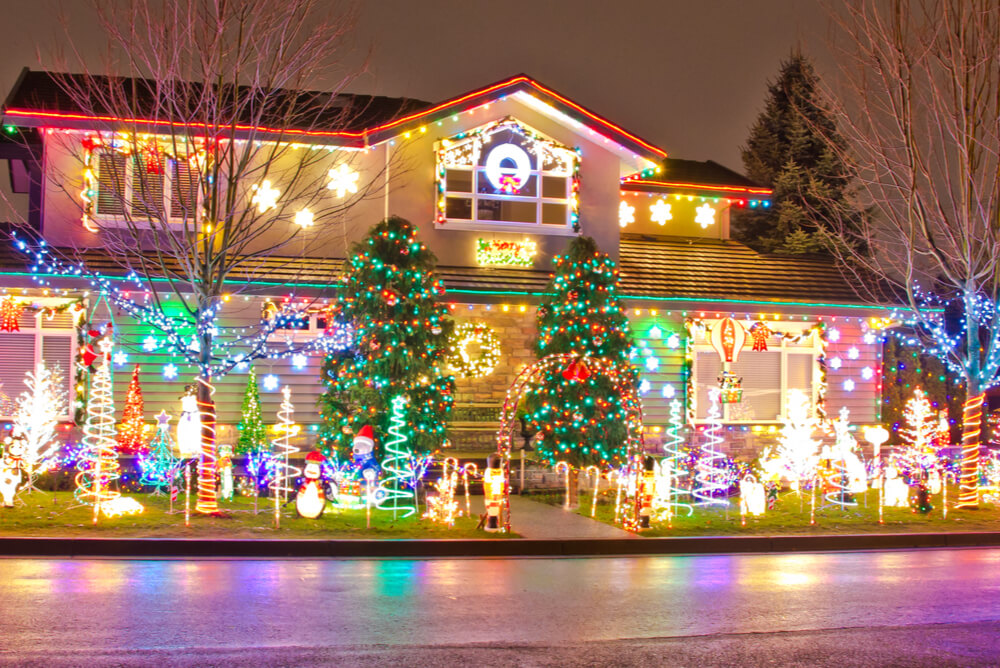
Christmas in Australia this year may not shine as bright as it has in the past, with new research from Compare the Market revealing that nearly two-thirds of Australians plan on changing their festive electricity habits amid the ongoing energy crisis.
According to the findings, the typical twinkle of fairy lights will be missing from many households this holiday season, with 11.9% of respondents admitting that they’ll put up fewer lights and 18.7% saying they’ll ditch Christmas lights completely this year.*
Meanwhile, nearly one in 10 (9.7%) say they’ll replace their older Christmas lights with energy-efficient upgrades or solar options. According to the Head of Energy at Compare the Market, Meredith O’Brien, hanging Christmas lights won’t necessarily increase your electricity bill by as much as you’d think.
“Depending on your electricity plan, the type of lights you use, how many you display and how long you keep them on for, Christmas lights may only add a few dollars to your bill for the whole Christmas period,” Ms O’Brien said. “LED Christmas lights use significantly less electricity than the incandescent ones you may have used in the past, while solar options don’t draw electricity from the grid.
“It’s typically other things that contribute to higher bills over Christmas, such as blasting your air conditioner, cooking Christmas meals, plugging in the spare fridge for your festive food and drinks or entertaining the kids with additional screen time.
“We are expecting a hotter and dryer summer thanks to the declared El Niño and coupled with higher electricity prices, chances are you’ll be paying more than you have in the past.”
Ms O’Brien said solar Christmas lights, which are powered entirely by the sun and don’t contribute to your electricity bill, have become increasingly popular in recent times. However, some people may not be aware that their old electricity-powered Christmas lights are bigger power guzzlers.
“If you’re planning on hanging old incandescent lights from your cupboard, garage or attic this year, it could be time to upgrade to LED or solar Christmas lights,” Ms O’Brien said. “Australia actually started phasing out these lights back in 2009 in favour of more energy efficient lighting, so if you’ve still got some incandescent lights and plan on putting them up, be prepared for a potentially higher bill.”
Christmas lights aside, Compare the Market’s data found that Australians also planned on altering their electricity usage in other ways. Just over 30% (30.5%) of respondents said they’d run their air conditioning less, 32% said they’d turn their unused appliances off at the wall and around one in 10 (10.6%) vowed not to use their extra fridge or freezer across the Christmas period.
“The air conditioner can be one of the biggest power guzzlers in the warmer months, but there are ways to maximise usage without sweltering on those hot summer days,” Ms O’Brien said. “Ideally, you want to set the temperature between 25 and 27°C.
“It can be tempting to set it to a lower temperature, but each degree cooler can actually add up to 10% more to your electricity usage. Use a fan where possible and ensure you close windows, doors and even curtains to keep rooms cool if you do have the air conditioner on.
“Switching off vampire power around the home is another easy win and could slash your usage by up to 10%. And while the spare fridge or freezer is a staple in homes during the festive months, just be aware that it can drive up your bill – particularly if you’re using an older fridge.
“Believe it or not, fridges that would’ve had a five-star energy rating in the 2000s would now only be two or three stars, so this is worth factoring in if you’re considering a spare fridge for those Christmas foods or drinks.”
Elsewhere in the survey, people said they’d try and reduce their Christmas electricity usage by:
- Relying more on solar panels and utilising solar power when it’s generated during the day (10.4%)
- Barbecuing more often to avoid electricity usage in the home (9.5%)
- Using the pool pump less than usual (3.5%).
“If you have solar, run those bigger appliances like washing machines, dryersand dishwashers during the day when the electricity is being generated or set timers so they run at optimal times,” Ms O’Brien said. “You’ll only be able to use solar electricity at night if you have a solar battery, so using it may be more cost effective than exporting it. Alternatively, you may wish to export solar power back to the grid in return for a credit on your electricity account, but the exact amount will depend on your retailer’s solar feed-in tariff and amount exported.
“And, if it’s been more than 12 months since you’ve changed electricity plans or your current retailer has upped prices, you may be able to pay less for the same electricity supply. Use comparison sites to compare your options and if you find a better deal, you can switch in as little as two business days. There are ways to save money and still have a Merry Christmas.”
*Survey of 1,005 Australian adults, conducted in October, 2023.
For more information, please contact:
Phillip Portman | 0437 384 471 | [email protected]
Compare the Market is a comparison service that takes the hard work out of shopping around. We make it Simples for Australians to quickly and easily compare and buy insurance, energy, and home loans products from a range of providers. Our easy-to-use comparison tool helps you look for a range of products that may suit your needs and benefit your back pocket.








